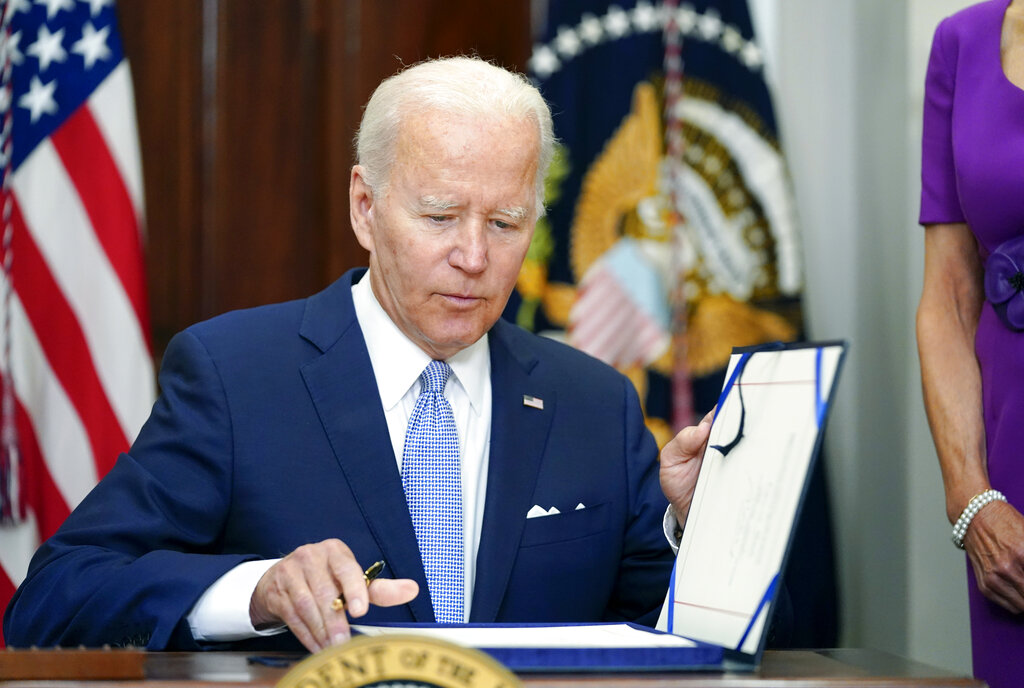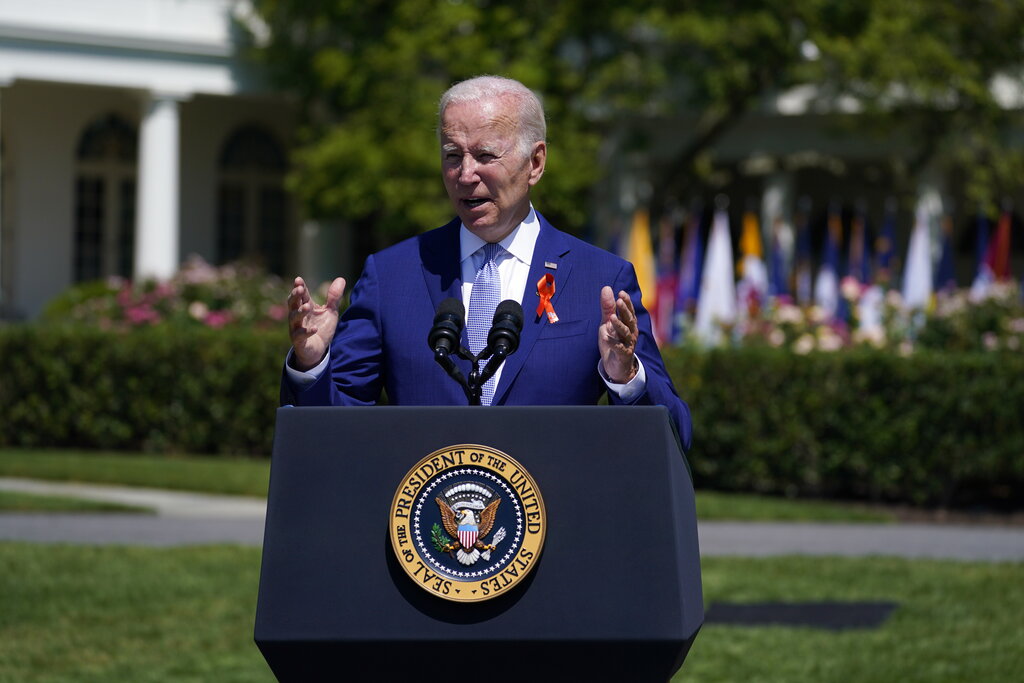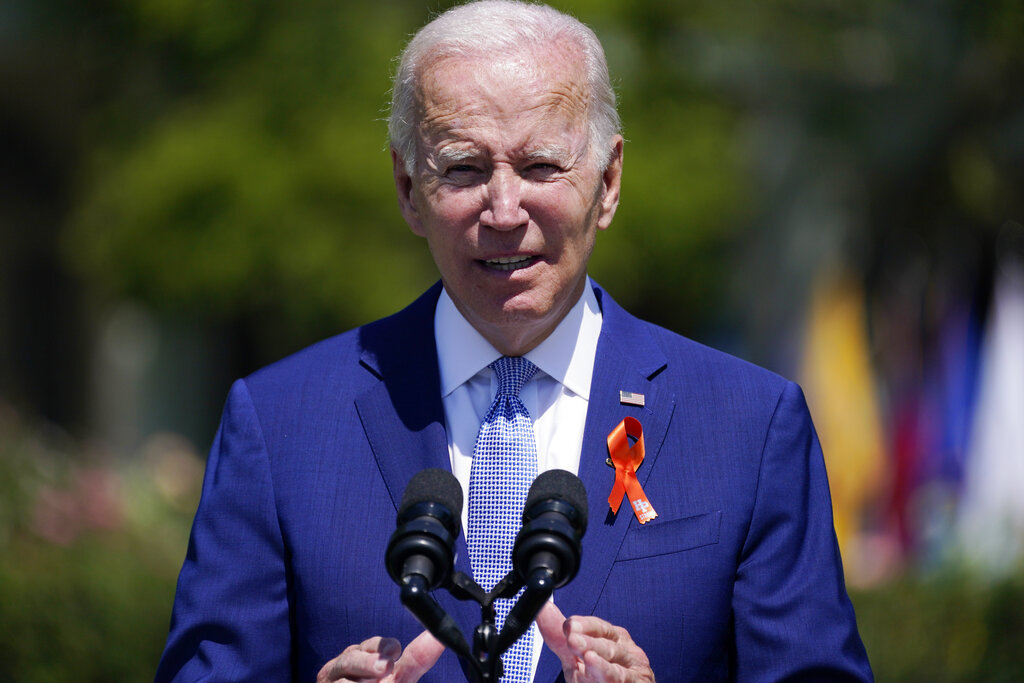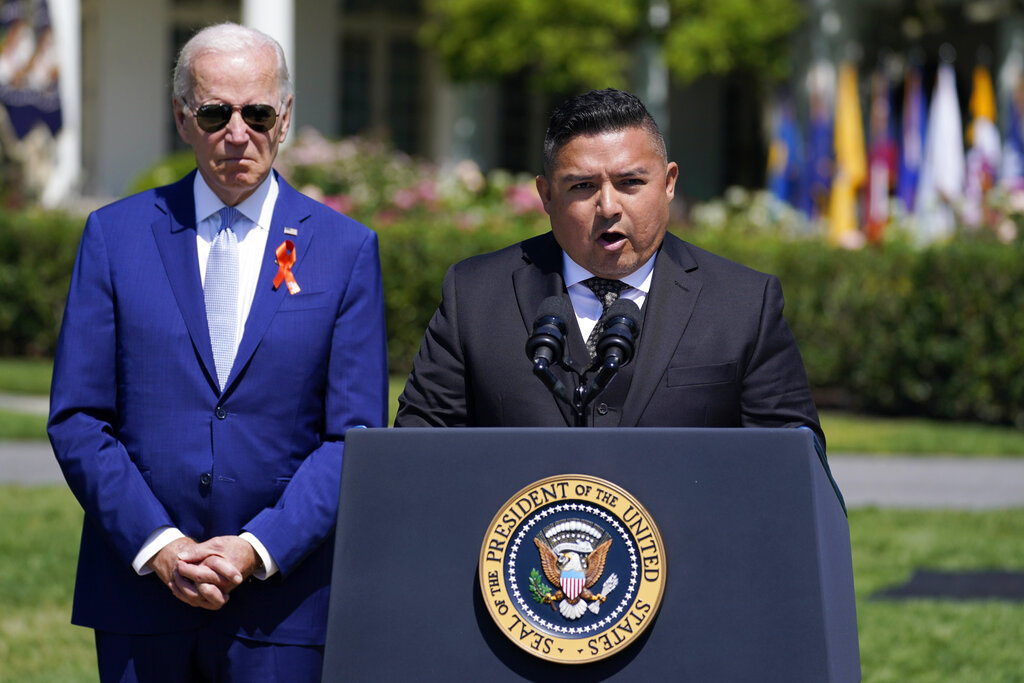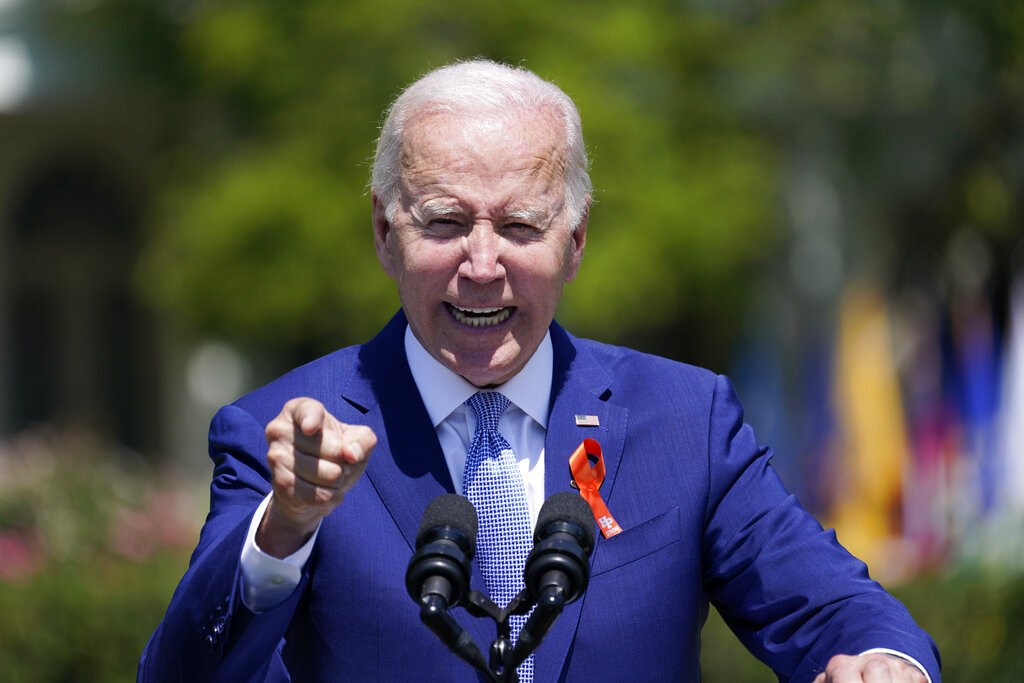WASHINGTON (NewsNation) — President Joe Biden hailed a new bipartisan law meant to reduce gun violence as “real progress” on Monday, but said “more has to be done” since after just 16 days in effect, that legislation already has been overshadowed by yet another mass shooting.
The bill, passed after recent gun rampages in Buffalo, New York, and Uvalde, Texas, incrementally toughens requirements for young people to buy guns, denies firearms to more domestic abusers and helps local authorities temporarily take weapons from people judged to be dangerous.
But the “celebration” Monday morning at the White House came a week after a gunman killed seven people at an Independence Day parade in Highland Park, Illinois, a stark reminder of the limitations of the new law in addressing the American phenomenon of mass gun violence.
Biden hosted hundreds of guests on the South Lawn, including a bipartisan group of lawmakers who crafted and supported the legislation, as well as local officials — including Illinois Gov. J.B. Pritzker and Highland Park Mayor Nancy Rotering — as well as the families of victims of both mass shootings and everyday gun violence.
“Because of your work, your advocacy, your courage, lives will be saved today and tomorrow because of this,” Biden said.
The law is the most impactful firearms violence measure Congress has approved since enacting a now-expired assault weapons ban in 1993. Yet gun control advocates — and even White House officials — say it’s premature to declare victory.
“It’s historic, but it’s also the very bare minimum of what Congress should do,” said Igor Volsky, director of the private group Guns Down America. “And as we were reminded by the shooting on July 4, and there’s so many other gun deaths that have occurred since then, the crisis of of gun violence is just far more urgent.”
Volsky’s group, along with other gun violence advocacy groups, was set to host a news conference on Monday outside the White House calling on Biden to create a dedicated office at the White House to address gun violence with a greater sense of urgency.
Biden has left gun control policy to his Domestic Policy Council, rather than establishing a dedicated office like he did to address climate change, or the gender policy council he established to promote reproductive health access.
The president signed the bipartisan gun bill into law on June 25, calling it “a historic achievement” at the time.
On Monday, Biden said the law’s passage should be a call to action for further action to reduce gun violence.
“Will we match thoughts and prayers with action,” Biden asked. “I say yes. And that’s what we’re doing here today.”
White House officials said Biden doesn’t see the passage of the bill as the finish line, but rather a foundation that needs to be built on. The Illinois shooting occurred nine days after the bill signing.
“I recently signed the first major bipartisan gun reform legislation in almost 30 years into law, which includes actions that will save lives,” Biden said after July 4th shooting. “But there is much more work to do, and I’m not going to give up fighting the epidemic of gun violence.”
Most of the new law’s $13 billion in spending would be used for bolstering mental health programs and for schools, which have been targeted by shooters in Newtown, Connecticut; Parkland, Florida; and many other gun massacres. It was the product of weeks of closed-door negotiations by a bipartisan group of senators who emerged with a compromise.
It does not include far tougher restrictions that Democrats and Biden have long championed, such as a ban on assault-type weapons and background checks for all gun transactions. Biden on Monday was expected to reiterate his call for those tougher measures, but prospects are slim for any further congressional action.
The United Nations estimates the U.S. homicide rate is three times that of Canada, five of France and 26 of Japan. According to some studies, there are more guns in America today than there are people.
The Associated Press contributed to this report.

